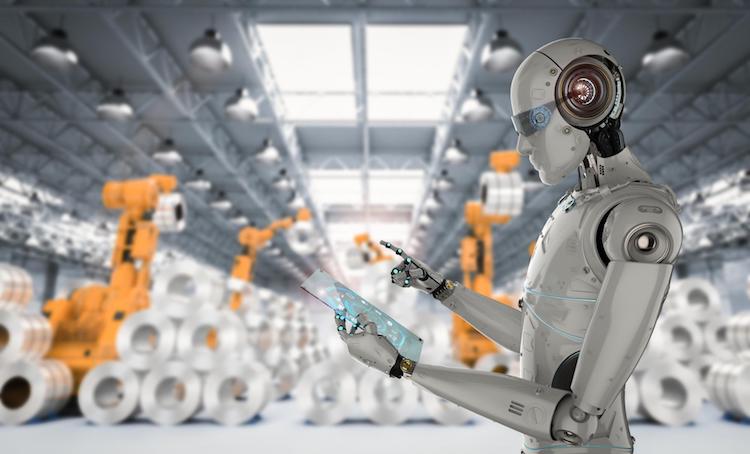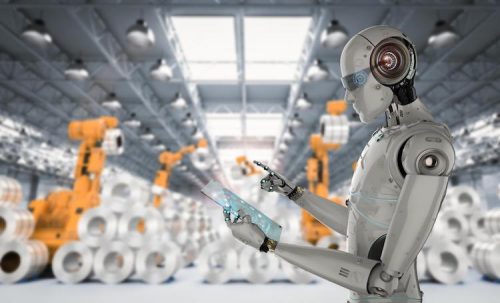What is the Future of Software Engineering

If you’re considering a career in software engineering, there’s no better time to get involved. This field is experiencing enormous growth across the United States and around the world. According to the U.S. Bureau of Labor Statistics (BLS), the number of job opportunities in software development is projected to increase 22% from 2020 to 2030, much higher than the projected national average growth rate for all professions of 8%. These numbers point to the bright future of software engineering, especially as new software development trends continue to fuel the profession’s progress.

There are a wide range of career options available to those who have an advanced degree, such as an online master’s in software development. In the past, software engineering positions were largely relegated to major tech companies. But as businesses of all kinds rely more heavily on computer-driven processes, it’s up to software engineers to design, maintain, and innovate these infrastructures. Increasingly, career opportunities extend to many sectors across many geographic regions. These sectors include retail, healthcare, research and development, business, banking and finance, government, and defense.
Amid all of this exciting growth, a few key software development trends have surged to the forefront as industry analysts look to the future.
Future Trends in Software Engineering
The push for innovation in the technology sector is unlike any other, which is a big reason why software developers are in such high demand. These are some of the most noteworthy future trends expected to change the current landscape.
1. Cloud Services
Moving to a cloud-based service isn’t just a possibility for most businesses; it’s practically inevitable. Although cloud computing has been around for some time, it’s now emerging as a viable hosting option for businesses in many different sectors. Companies such as Facebook, General Electric, eBay, and Fitbit have already fully adopted cloud-based technology, which has motivated other companies to follow suit.
Among the many benefits of moving to the cloud include significant cost savings, increased security, ease of use, increased flexibility, and the ability to seamlessly collaborate. Additionally, many cloud-based services offer cloud analytics, which is a valuable tool for those who make data-driven decisions.
Because so many companies are transitioning to cloud-based services, demand has never been higher for cloud engineers.
2. Artificial Intelligence
No future trends list would be complete without artificial intelligence. Although long discussed in theoretical terms, it’s only recently begun to show promise with practical applications. We see these in the form of voice assistants, chatbots, and other AI-enabled devices designed to make our daily lives more convenient. AI has allowed companies to automate menial tasks, perform complex analyses, and reduce human-made errors, among other benefits.
However, the technology has a long way to go to reach its full potential. Developers are trying to train AI to perform complex tasks without human intervention. It’s still relatively early in the realm of AI development, which means there’s room for growth. AI developers are in high demand, and this demand is forecasted to continue growing in the coming years.
3. Blockchain Technology
Now that blockchain technology has proven itself in the world of cryptocurrency with Bitcoin and its descendants, other industries are realizing its true potential. The strength of blockchain is that it establishes trust between parties using transparency and security, hence its appeal to the banking industry. However, its applications go far beyond the financial sector. The shared, immutable ledgers blockchain employs can be used for car sales, land purchases, or intangible items such as copyrights or intellectual property.
4. Cybersecurity
Cybersecurity remains a top priority for companies that need to protect valuable data from hackers and cybercriminals. Financial institutions especially need to be able to assure their customers that their data is secure behind an uncrackable digital lock, which is why the cybersecurity industry remains a popular field for developers. Cyber attacks are becoming increasingly more innovative and sophisticated, which means security needs to be stepped up to defend organizations against them. Cybersecurity is likely to be a key part of the future of software engineering.
5. Advanced Algorithms Driving Automation
Businesses are increasingly shifting their operations toward automation. Machines and computer software increasingly handle more repetitive tasks, freeing up people to leverage their creativity. Global sales of automated industrial robots reached around 373,000 units in 2019, according to Statista. Automation technology runs these machines and allows them to perform efficiency.
Automation goes beyond robots on the manufacturing floor: It also impacts the online business world. For instance, digital marketing automation relies on algorithms that determine everything from when companies send out content to how they structure marketing campaigns and place ads. According to Grand View Research, the global marketing automation market was valued at $4.06 billion in 2019 and was expected to grow by 9.8% annually between 2020 and 2027. This demand opens up opportunities for aspiring software engineers with leading-edge skills in coding, computer programming, mathematics, and software engineering.
High Demand for Skilled Software Engineers
Why will there be an increasing demand for skilled software developers as we look to the future of software engineering? The answer is simple — the modern world runs on software. Most companies and organizations rely on websites, apps, or computer-based software to keep their businesses running and successful. Responding to constant competition and advancements, software engineers build programs, make improvements, and adjust code to maintain agility and usefulness. Even as the tools that software engineers use to develop their programs improve, market demands are becoming more complex, meaning potential employers desire a high level of professional expertise.
The future of software engineering welcomes professionals who are savvy about existing tech and creative enough to help drive the future of this field and its applications.
Career-Oriented Computer Science Education
Software development trends show the ever-growing volume and range of new technology platforms is creating new software engineering positions at a robust rate. If you are a professional who is looking to seize opportunities in the future of software engineering, you should first gain advanced skills and knowledge in computer science.
A master’s degree in the field of computer science offers the opportunity to engage with the concepts that are informing tomorrow’s software development trends, as well as prepare for the careers that will actively shape the industry. From DevOps engineering — creating automated processes between various teams that allow them to work together efficiently — to data science, a computer science curriculum empowers you to build knowledge that has broad and meaningful applications, with the opportunity to dig deeper into specific areas that interest you.
Help Shape Software Development Trends
You can learn about the future of software engineering and prepare for a potential career in the field by pursuing one of Maryville University’s online computer science degrees, such as the master’s in software development. With web-based advanced study options that keep future trends in the forefront, you can not only learn necessary skills to enter the workforce, but also gain the vision to drive innovation.
Recommended Reading
MS Software Development Careers
Online Computer Science Degrees
Sources
10xDS, Top 10 Benefits of Artificial Intelligence (AI)
Finsmes, Future of Software Engineering: Main Trends & Changes
Futurism, “If You Want to Change the Future, Become a Software Engineer”
Grand View Research, “Marketing Automation Market Size, Share & Trends Analysis Report”
IBM, What Is Blockchain Technology?
RSWEBSOLS, Future of Software Engineering | Trends, Predictions for 2021 & Beyond
Salesforce, 12 Benefits of Cloud Computing
Statista, Industrial Robots Worldwide — Statistics and Facts
Towards Data Science, This Is a Great Moment to Look for a New Job in Artificial Intelligence
Upguard, Why Is Cybersecurity Important?
U.S. Bureau of Labor Statistics, Software Developers, Quality Assurance Analysts, and Testers

